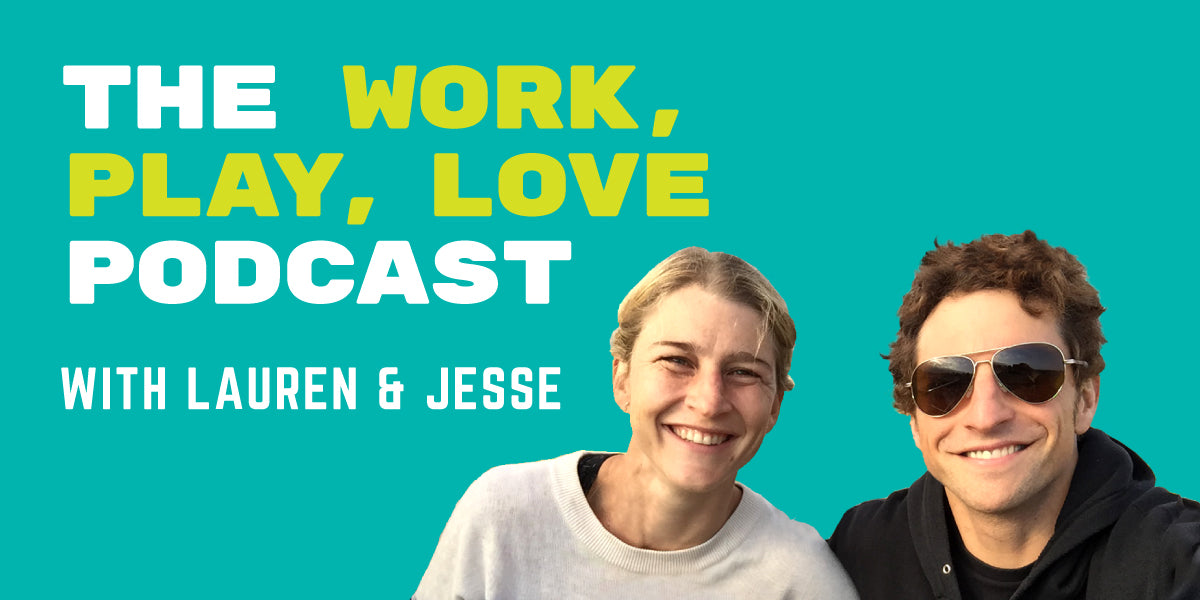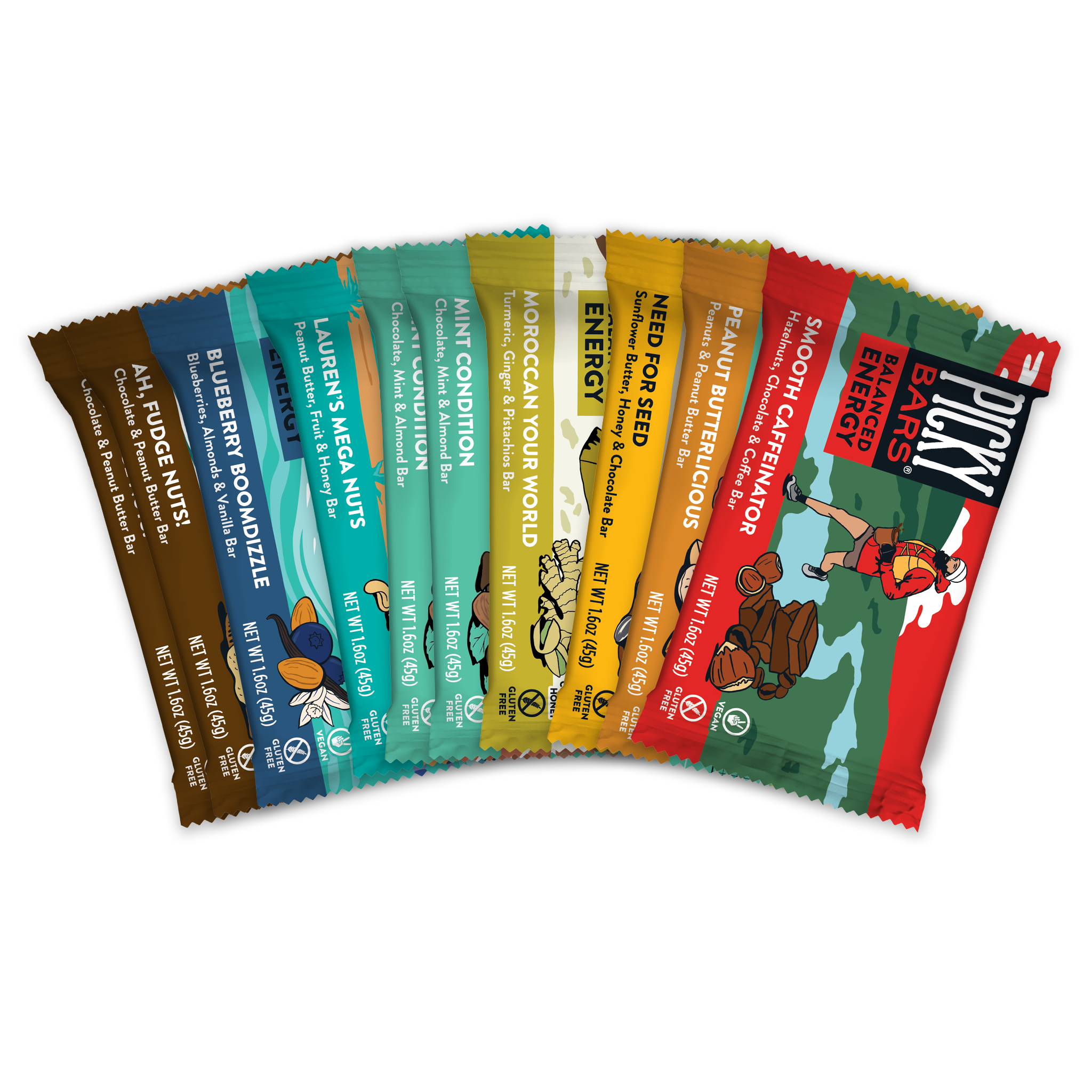

· By Sarah Conklin
41: Racing While Grieving, First Dates, Trolls
Juggling work-life balance can be a real three-ring circus, which Lauren & Jesse know first hand. Led by listener questions, the Work, Play, Love Podcast is all about sports, biz, and family. [ASK YOUR QUESTION]
41: Racing While Grieving, First-Date Advice, Triathlon Training Commitment, Online Trolls
iTunes | Spotify | Google Play | Stitcher
Description:
Sometimes when the going gets tough, the tough get to Work-Play-Love-ing…! Whether you’re going hard at a dance party after a hard weekend of parenting (and racing) like Lauren, or you’ve got renewed focus at work because an injury is keeping you off the field like Jesse, balancing relationships, sports, and work is just that—a balance. Listener questions are all about the hard stuff this week. Jesse and Lauren talk about racing (or not racing) after you’ve lost a loved one. They offer some dating advice for late bloomers (like them). They talk about how to navigate relationships when you’ve got a big training commitment. And they share their thoughts on message board trolls.
Listener Questions, L&J Answers
8:58 - Are you supposed to wear underwear under running pants or shorts?
It depends! For women, if it’s a loose fitting garment and you feel comfortable wearing underwear—or feel like you want to wear underwear—go for it. And if you’re wearing form-fitting athletic wear, like the Oiselle Long Pocket Joggers, you don’t really need underwear because you’re already combatting chaffing by wearing a tight garment.
For men, yes. Wear underwear under your running pants or shorts.
For both men and women, a lot of running shorts come with briefs built in to the garment, and if that’s the case, you don’t want to wear your own underwear.
13:16 - What are some first triathlon tips when it comes to gear?
One of the best small pieces of gear you can get is a race belt. Most races in the US don’t require you to wear your race number when you ride or swim, so it’s nice to be able to throw the race belt on for your run.
Bungee laces are also popular with triathletes. But for any piece of gear, it’s important to practice with it to see what works for you. Bungee laces, for example, are comfortable for some people, but not for all—so it’s important to try gear and see what works for you.
15:22 - What should you look for when hiring a running coach?
When hiring a running coach for the first time, personal references are key. If there’s a coach whose platform appeals to you—you like their website, or their Instagram, or the training materials they put out—reach out and ask for references from athletes they have coached.
17:31 - Any idea when Oiselle will have more racing crops for sale?
No idea!
17:46 - Do you have any advice for racing or training while grieving the loss of a loved one or dealing with other emotional stress?
It’s natural for athletes to want to exercise and keep pushing towards their goals as part of their own grieving process. Running and exercising can open you up and help you through times of emotional stress. But training while grieving can be really tough. Just know that as you exercise, and as you work toward a race, emotions may pop up in surprising ways. In these moments, listen to your body—don’t overdo it—and ride the ups and downs of the experience in the best way you can.
Another thing to consider when you’re grieving is to seek the help of a therapist or a counselor. Having a professional help you process your emotional stress can be extremely effective.
One thing to watch out for is that there can be a tendency for athletes to over-commit to sport as a form of escapism from their grief, and that can catch up to you in unexpected ways.
28:01 - Can you help an athlete out with some advice about first dates or a first kiss?
Athletes can be so focused on their sport and performing at a high level, that thinking about relationships kind of goes out the window. You can end up feeling like a late bloomer. That’s. Totally. Normal. When you start dating people—even if it sounds cheesy—remember to be yourself! Wear athletic clothes if you want. Talk about the things that interest you. Be confident knowing that you’re bringing a lot to the relationship as a hard-working athlete. It’s also OK to own your inexperience. Brené Brown’s work on vulnerability is a great reference point for this. The wrong people might find your honesty and vulnerability weird. But the right people will be grateful and will feel privileged to be let into your life in that way.
Resource: Brené Brown – The Power of Vulnerability
35:09 - What’s the best way to handle conflict with your partner over the time commitment required for triathlon training?
This is the tricky part of balancing Play and Love! And it’s a typical issue for athletes training for triathlon. Pursuing personal athletic goals can absolutely be a point of conflict in relationships and in family life. Here are a few tips to help you out:
- Re-evaluate your training plan. You may not need to be out training for 20 hours a week. More training does not always equal faster. Check in with a coach to see where your training is improving your performance, and where you can scale back without compromising your goals.
- Remember that Sport is Play. Personal goals and athletic achievements are something to be proud of and can carry a lot of importance for athletes. But remember that sport is play, and unless it’s your job, consider that this is a fun part of your life and can stay in the “play” box so that other aspects of your life—work and love—can thrive in a healthy way, too.
- Negotiate with your partner and add seasonality to your training. Training for a big race is a big commitment and can take a toll on your significant other. Try to put boundaries around your training: pick the race(s) you want to participate in, find a level of commitment you and your partner can agree upon, and put that training season on the calendar. Then, make sure you put vacations and other quality time on that same calendar—so you and your partner can look forward to a season of time together.
42:09 - What are your thoughts on internet message boards for athletes and the trolls that harass professionals there?
Sport websites for athletes like Slowtwitch.com and Letsrun.com are phenomenal resources. But their message boards—like many forms of social media—are filled with harassment and personal attacks you would rarely encounter offline. This is a common phenomenon that comes with anonymity online. It’s a shame because these platforms have great information and have the potential to be outstanding communities for our sports. It’s worth considering doing away with anonymity in the name of having a more civil community and more engagement from professionals and other enthusiasts who otherwise avoid message boards for this reason.
Follow-ups
Episode 39 Follow Up: Having a partner with an injury.
My other half broke his elbow really badly 8 weeks ago on the last day of my toughest set of on call shifts. He needed surgery for it and was in plaster unable to fend for himself for 2 weeks. Although we don't have children, I completely empathize with Lauren’s feelings: you feel bad for them, because it is painful, and it derails their athletic goals and their chance to "play" but also have a heart-sink because the fire under your ass just got hotter. It does get better quickly, I promise. Jesse, I hope you have a speedy recovery.
Episode 39 Follow Up: Moving In Together
Whether it's top sheet preferences, separate blankets, or different bed and wake times, communicating your needs and finding connection points within that is where relationships grow (and you get the sleep you need!). My guy and I have had separate comforters for over a decade and it's just the best (even if his decade-old one horrifies me every now and then). The split King = genius!
Episode 40 Follow Up: Heat Training
I personally do not know much about it, but recently read this in-depth article that had suggestions for heat acclimation in Trail Runner Magazine - hope this helps!
Episode 39 Follow Up: Swimming Advice and the Shalane Effect
As a former Olympic Trial Qualifying and D1 National Champ swimmer (albeit 20 years ago), I wanted to respond to the question about the 11-year-old girl and building comradery in swimming. Depending on where you live, swimming can be an isolating sport until high school or college where team is more present. However, I found based on the demands of the sport my swimming friends were my closest friendships mainly based on how much time you spend with each other. Yes, it can be competitive during the race, but that is only a fraction of the time spent. Let's be honest, friends make a sport fun! When girls get to age 13 -15 in swimming, there is a high drop-out rate based on other interests vs time in the pool. The circle of friends becomes smaller and closer at the same time team is added to the dynamic with high school swimming. Swimming is on TV more than ever now. I would recommend watching videos from the most recent NCAA championships. It is all about team. Since my team won the NCAA championship by just a few points, even that 16th place finish matters. Also, the Olympics will be coming up in 2020 and Team USA will be on full display. To this day, my swimming friends are some of my favorite people. We don't see each other often but when we do it is still so much fun with lots of laughs and good stories.
As always, submit your work/play/love question at pickybars.com/workplaylove - Thanks for listening!

[ PAST EPISODES + DESCRIPTIONS ]





